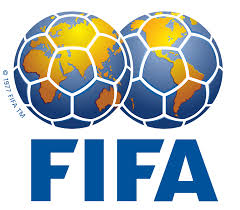A study conducted last week by Brand Keys found that World Cup sponsors could lose up to 20% of their fan engagement strength because of their association with Federation Internationale de Football Association (FIFA), the governing body for soccer, the organizer of the World Cup that is under attack for corruption and bribery charges.
No marketer or sponsor brand can have missed the well-publicized arrest of the 9 FIFA officials and 5 corporate executives following a U.S. Justice Department 47-count indictment. Charges ranged from bribery, corruption, racketeering, fraud, and money laundering. So the kind of stuff you really don’t want your brand associated with. Seventy-nine percent (79%) of the 2,258 U.S. soccer fans participating in the National survey indicated that they would be negatively disposed to a brand that was associated with FIFA.
The extent of the charges may have come as a surprise to fans of the game, but surely not to the sponsors who had to have heard all these assertions regarding bribery for years. FIFA and the game have operated under a cloud of negative allegations ranging from leadership corruption to match- fixing to bribes paid to influence host-country selection for the World Cup for decades.
Why do you think President Putin accused the United States of “global overreach” and was so adamant about the FIFA charges? Russia is due to host the 2018 games and as expected Mr. Putin defended Sepp Blatter, the Swiss president of FIFA, while he battled to retain the presidency of the FIFA (He was re-elected last Friday, stating, “Why would I step down? That would mean I recognize that I did wrong. I fought for the last three or four years against all the corruption.”) Twitter messages from angry fans have suggested Mr. Putin’s position was entirely due to his fear that the games would be awarded to England or the United States and Mr. Blatter’s rumored “no money back” policy as regards bribes. You can be the judge about that one.
FIFA is a “nonprofit” organization. A nonprofit that took in an estimated $4 billion from the 2014 World Cup, most of which came from broadcast deals and brand sponsorships. As the anti-FIFA corruption movement grows, the study found that brands will ultimately suffer more than they gain from their official sponsorship with the world’s largest sporting event. Keep in mind, we understand that the corruption charges won’t stop fans from watching the games, it just poses an additional engagement barrier that sponsor brands will have to overcome if they wish to see real engagement ROI from their very, very expensive investments. Engagement is tough enough to attain under the best of circumstances, but in the face of on-going criminal charges, it understandably makes it a bit more difficult. Make that a lot more difficult. Anyway, the survey examined seven major “official” U.S. FIFA sponsor-brands to determine the current effects their affiliation with FIFA has had on those brands.
The first percentage indicates the brands’ current fan engagement strength, absent of any sponsorships, versus the Ideal in the category in which the brand competes. The second percentage is how fans rate those same brands based on “a continued association with FIFA and sponsorship of the World Cup.” These emotional engagement assessments always correlate very highly with behavior toward brands in the real marketplace. Significant losses in fan engagement don’t generally bode well for a sponsoring brand. Awareness and additional exposure is no replacement for real fan engagement, particularly for brands already well known by most of the sentient being in this universe and able to afford to buy into such expensive global special events.
Sponsor Current Fan Engagement Association with FIFA World Cup
Adidas 82% 70%
Budweiser 81% 61%
Coke 89% 80%
Hyundai 94% 88%
McDonald’s 79% 62%
Sony 83% 75%
Visa 87% 71%
Again we think it’s worth mentioning that it’s not as if sponsors have been unaware of these allegations. The perceived “value” of the event has caused brands to turn a blind eye to decades of accusations. And in light of the new charges, you can expect that they’ll all express deep concern over the corruption charges and negative publicity, with all the brands expressing “concern for the sport, the good of the game, ethical standards, partner transparency, and the fact that they take all this seriously and are carefully monitoring the situation, while being distressed by the tenor of the public debate.” Go ahead and check what every one of these brands has said about the FIFA situation. Drinks and dinner for anyone who can find an official quote that indicates that the brand knew about past FIFA transgressions and that all this aren’t entirely new revelations to them.
Sure, even in the absence of any real ROI, most sponsors see the World Cup as a valuable commodity. But commercial pressure will become the ultimate test as it always does. None of the brands included in this survey have pulled out yet, but every one of the brands has to be weighing the risks of continued association with what appears to be a thoroughly corrupt organization.
It’s likely that sponsors will take a wait-and-see approach and pray that all this dies down. But it’s a fair bet that brands will rationalize sponsorships on the basis of the sport and not FIFA, although it’s also worth remembering that currently – and without question in 2018 – brands will have lots of digital options to substitute for “official” sponsorship. They’re already dong that with lots of events that aren’t currently under incitement!
Find out more about what makes customer loyalty happen and how Brand Keys metrics is able to predict future consumer behavior: brandkeys.com. Visit our YouTube channel to learn more about Brand Keys methodology, applications and case studies.
Share this:
